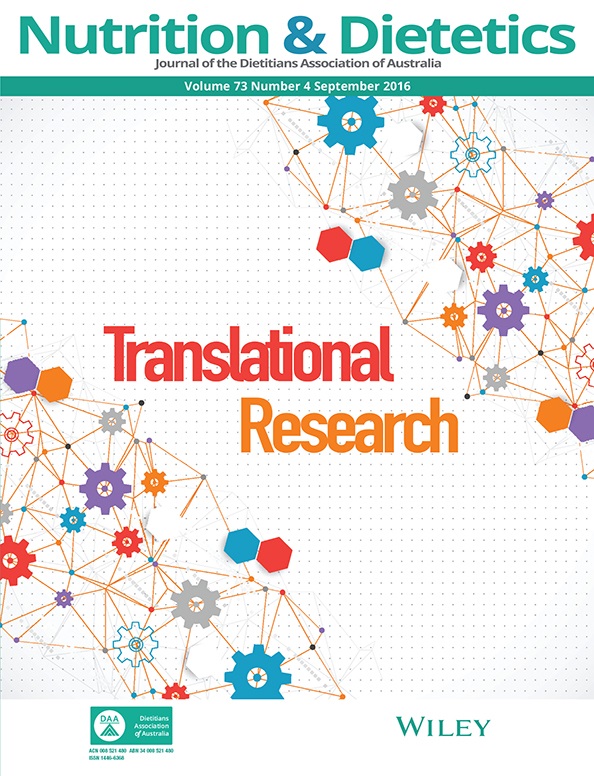Evaluation of a process of implementation of a gestational diabetes nutrition model of care into practice
Abstract
Aim
Poorly controlled gestational diabetes mellitus can result in negative pregnancy and delivery outcomes. A reduced need for insulin was documented in the validation of American gestational diabetes Nutrition Practice Guidelines, which recommend at least three dietitian visits. No Australian gestational diabetes mellitus nutrition guidelines exist. This paper evaluates the implementation of a dietetic model of care based on the American guidelines in an Australian hospital.
Methods
The implementation plan consisted of a nine-month pre (usual care)/post (new model of care) design with a month for ‘integration’ across 2012–2013. Primary outcomes were uptake of the new dietetic model of care and requirement for pharmacotherapy.
Results
Both phases ran for seven months; integration required four months. Pre-intervention, only one woman received a review appointment. Significantly more women received best-practice care post-implementation (P = 0.02); of the 162 women seen, 50.6% received two review appointments. As a result of heavy clinical demand, only 31.5% of the women seen post-implementation received an individual dietitian assessment and education session, deviating from best practice. Clinically relevant changes were seen in medication requirements with a decrease in women requiring pharmacological treatment (31.1% (pre); 26.9% (post)). The difference was more pronounced in women who received best-practice care (27.2% (no) vs 25.0% (yes)).
Conclusions
This project successfully increased the proportion of women seen according to best practice. Service limitations impaired the delivery of optimal care. The present study illustrates the opportunities and challenges of conducting evidence-based implementation research in routine clinical care.




